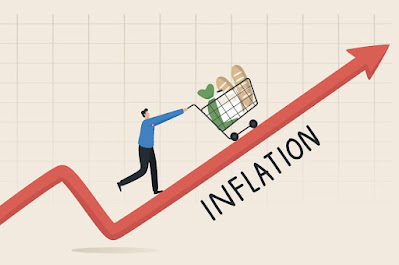Are You Prepared For A Sudden Job Loss?
 |
| Toronto Goodwill store. |
Today came word that Goodwill will not be paying these 430 employees for their last 2 weeks of work. They were supposed to be paid tomorrow.
Obviously, this is a sad story. It's not fun to lose your job. It's also not fun when your family is impacted.
However, the interviews of some employees are quite distressing. Many are saying they were counting on the money. Some were saying they wouldn't be able to make rent. Some even told the reporter that they were living paycheque to paycheque.
The sudden loss of a job is shocking. No doubt. However, this shouldn't come with the uncertainty of how you'll survive for the next few months while you find another job.
At minimum, these people being interviewed should have had some sort of emergency fund.
This is not to say all these people should have had an emergency fund. I'm sure the people not making a stink in the media had emergency funds or were just working at Goodwill because it was something they wanted to do rather than something they needed to do for money.
Yes, money is tight. Renting in the city is very expensive. Despite being unionized, I'm guessing a lot of these workers were barely making above Ontario's $11/hr minimum wage.
That's all the more reason to save money for an emergency fund.
A lot of personal finance experts recommend 3 months of expenses to get by.
Personally, I think it depends on how easy it would be to find a new job. In today's economy with news of job cuts and losses everyday, I'd say 6 months is a safer bet.
Yikes! 6 months of expenses?
Yes. I think that's safe. Assuming you live within your means, you could probably even stretch your budget further.
Currently, wifey and I have 1 months of expenses in cash (in a safe at home) and in a chequing account. This is assuming we continue spending money as if we both have jobs. Really, this money could last us 6 weeks since expenses would be lower as we wouldn't be commuting as often.
If you count the stash of USD we have, that's another 2 months of expenses (or 3 months with the lower expenses).
Finally, we have $10,000 invested with TD e-series that is to be used in an emergency. That's if we go 4 months with both of us not finding work.
Sure, it's recommended you don't put your emergency savings in investments. But despite the recent bear market, I'm only counting $7,000 of that $10,000 for emergencies (assuming a market crash of 30%). Hopefully, it wouldn't come to that.
This situation is assuming both of us lose our jobs at the same time and can't find new jobs.
If only one of us loses our jobs, we'd be able to keep our heads above water. We would still need to dip into our savings, but our cash and chequings alone would last 6 months. The stash of USD would give us another 12 months. That's 18 months to find another job before we'd need to dip into the TD e-series.
As you can see, we're very prepared for a sudden job loss. At least, we have a plan and have cash at the ready.
What about EI?
Yes. With EI, we wouldn't need to dip into our savings either. I don't know how long EI lasts. (6 months?) It's probably something I need to be aware of. However, you cannot count on EI right away. There's still an application process. I believe it would take about 2 weeks. Even then, you'd only receive a portion of your lost wages.
In the case of the Goodwill workers, before they can apply for EI, they'll need to receive the record of employments from Goodwill. It would appear Goodwill is dragging their feet in that regard.
So anyway, don't count on EI. At least, not right away.
In short, have an emergency fund for 3-6 months. Don't count on EI to kick in right away.


Comments
Post a Comment